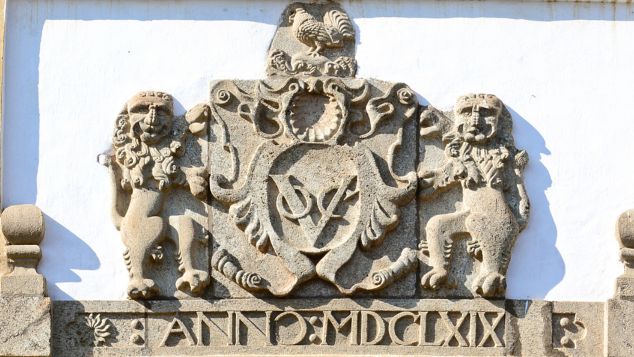In 1725 Leendert Hasenbosch was marooned on an island
Leendert Hasenbosch was an employee of the Dutch East India Company who was marooned on an uninhabited island in the South Atlantic Ocean after his shipmates found him guilty of the crime of sodomy.
Hasenbosch was born in Holland, probably around 1695. When he was a teenage his father, who was a widower, moved to Batavia in the Dutch East Indies with his daughters leaving his teenage son in Holland. What was known as Batavia is now part of Indonesia.
In 1714 he joined the Vereenigde Oostindische Compagnie (VOC), known in English as the Dutch East India Company. Hasenbosch served as a soldier and was travelled to Batavia where he served for a year. Later he spent time working for the company in India. In 1720 he returned to Batavia and was promoted to the rank of corporal.
On 17th April 1725 he was convicted of sodomy following his ship making a stop in Cape Town, South Africa. As punishment he was marooned on Ascencion Island on this day in 1725. The volcanic island is 1,600 kilometres from Africa, and 2,300 kilometres from South America.

He was left with a month’s worth of water, some seeds, prayer books, writing materials and some clothes and a tent. It is presumed that he died about six months after he was left on the island.
In January of the following year British sailors discovered his tent and his diary. The original diary was lost long ago but copies of the translation that was published in Britain give us some idea of what happened after he was abandoned on the island.
Unable to find a constant supply of water Hasenbosch reported took to drinking his own urine, and also tried drinking the blood of turtles and sea birds. It is believed that he eventually died of thirst, but his body was never found.
Over the centuries various versions of his diary were published, often attributed to an unknown sailor. Their accuracy becoming less reliable with each passing iteration.
In 2002 Dutch historian Michiel Koolbergen confirmed the identity of the marooned man was Leendert Hasenbosch. His book A Dutch Castaway on Ascension Island in 1725 was published posthumously in 2006.
Two years after Hasenbosch was marooned the crew of the Dutch East India Company’s ship The Zeewijk became shipwrecked on the Abrolhos Islands in June 1727. The crew survived on the islands as there was fresh water and plentiful food sources, long boats from the wreckage also were recovered.
In December 1727 two boys who were part of the ship’s crew were found guilty of sodomy and transported to separate islands where they were left to die.




